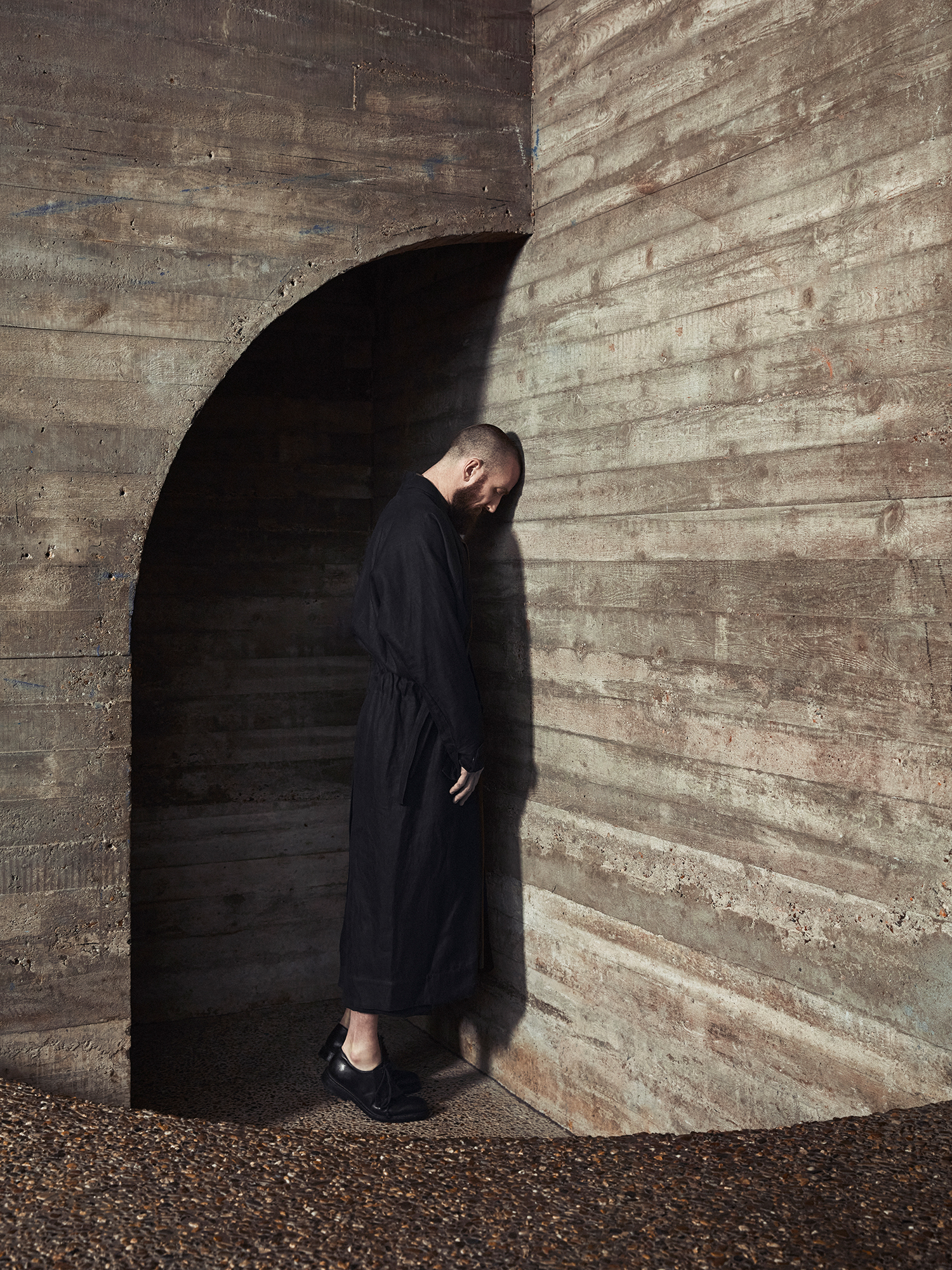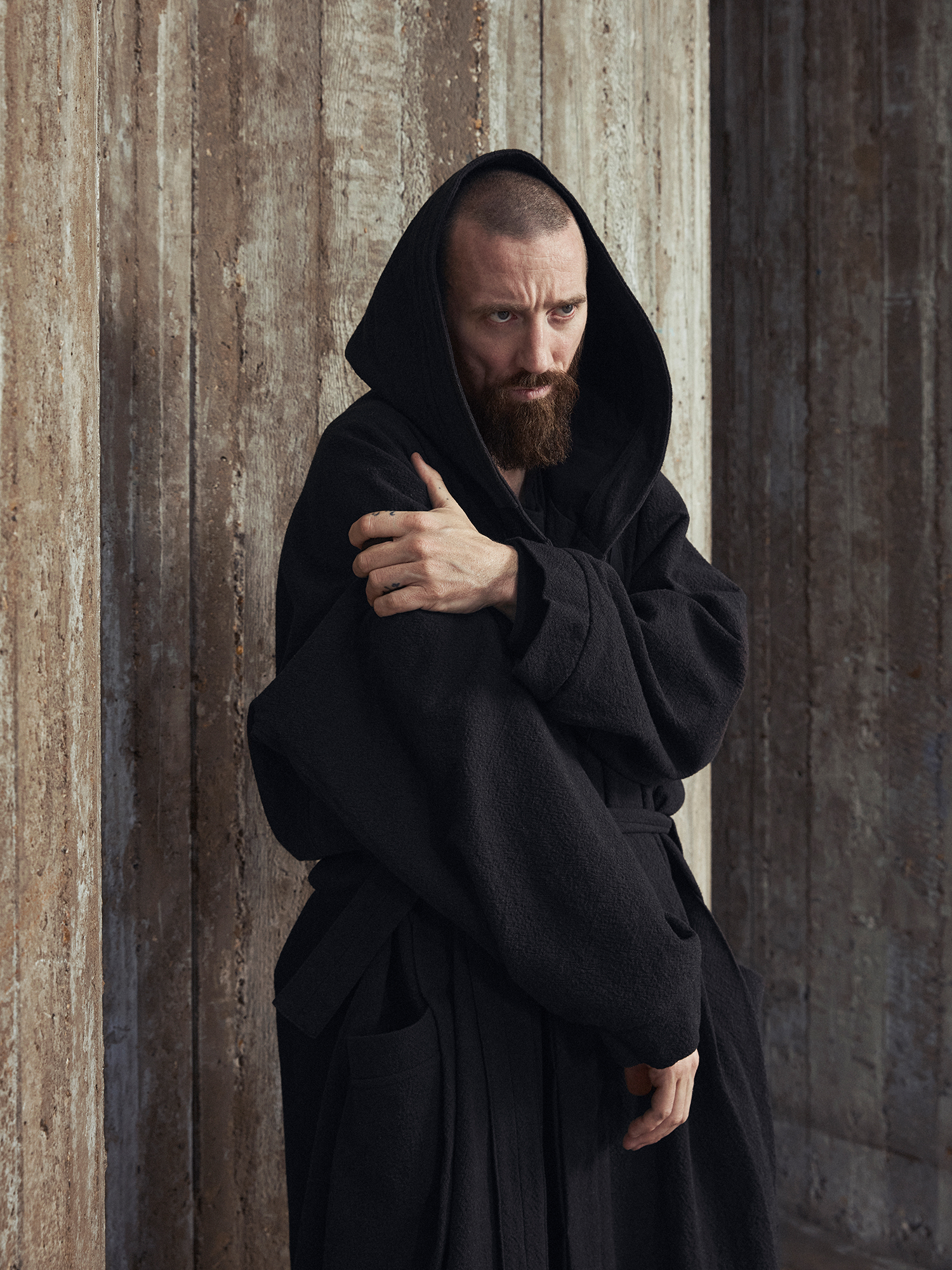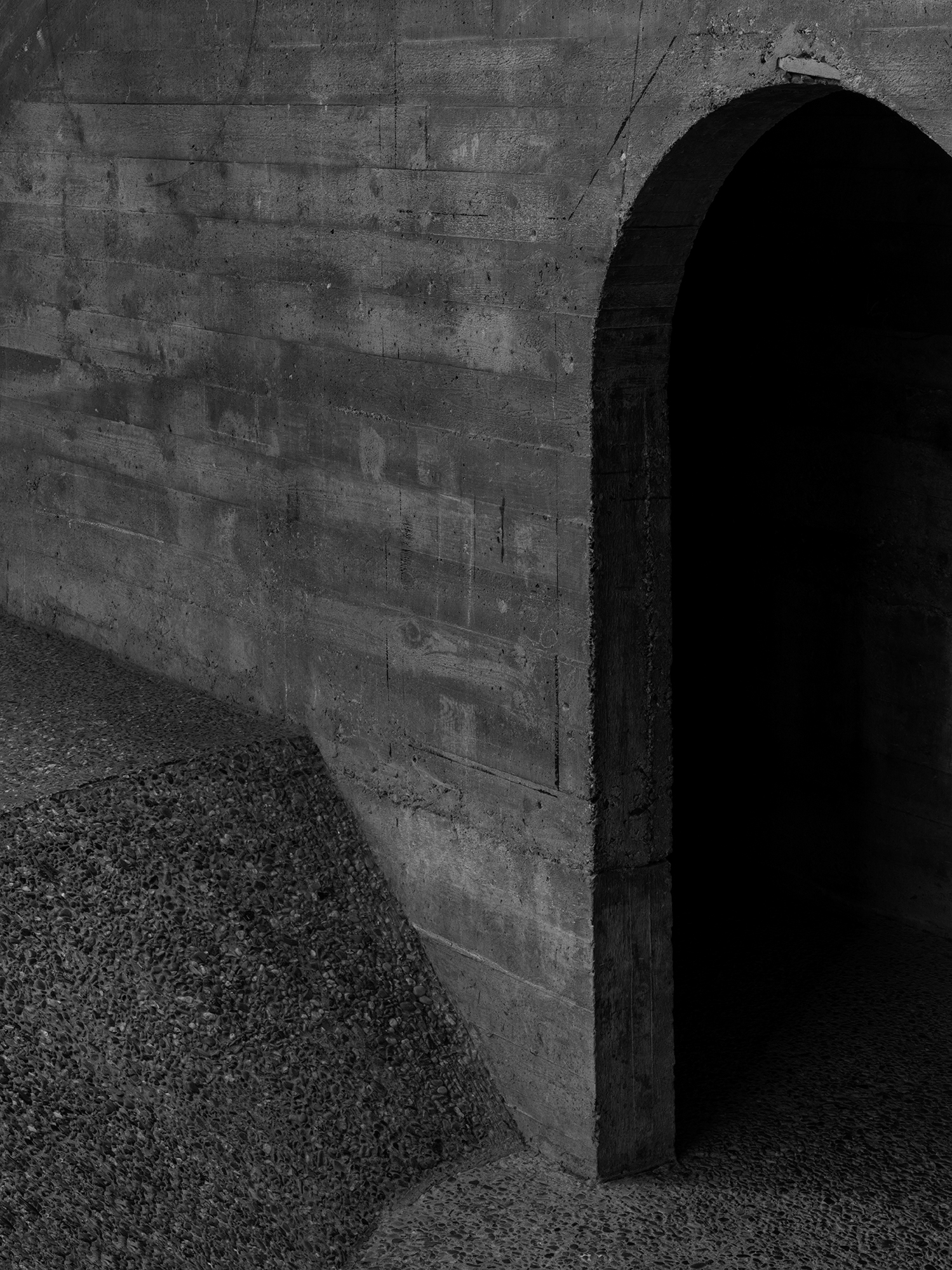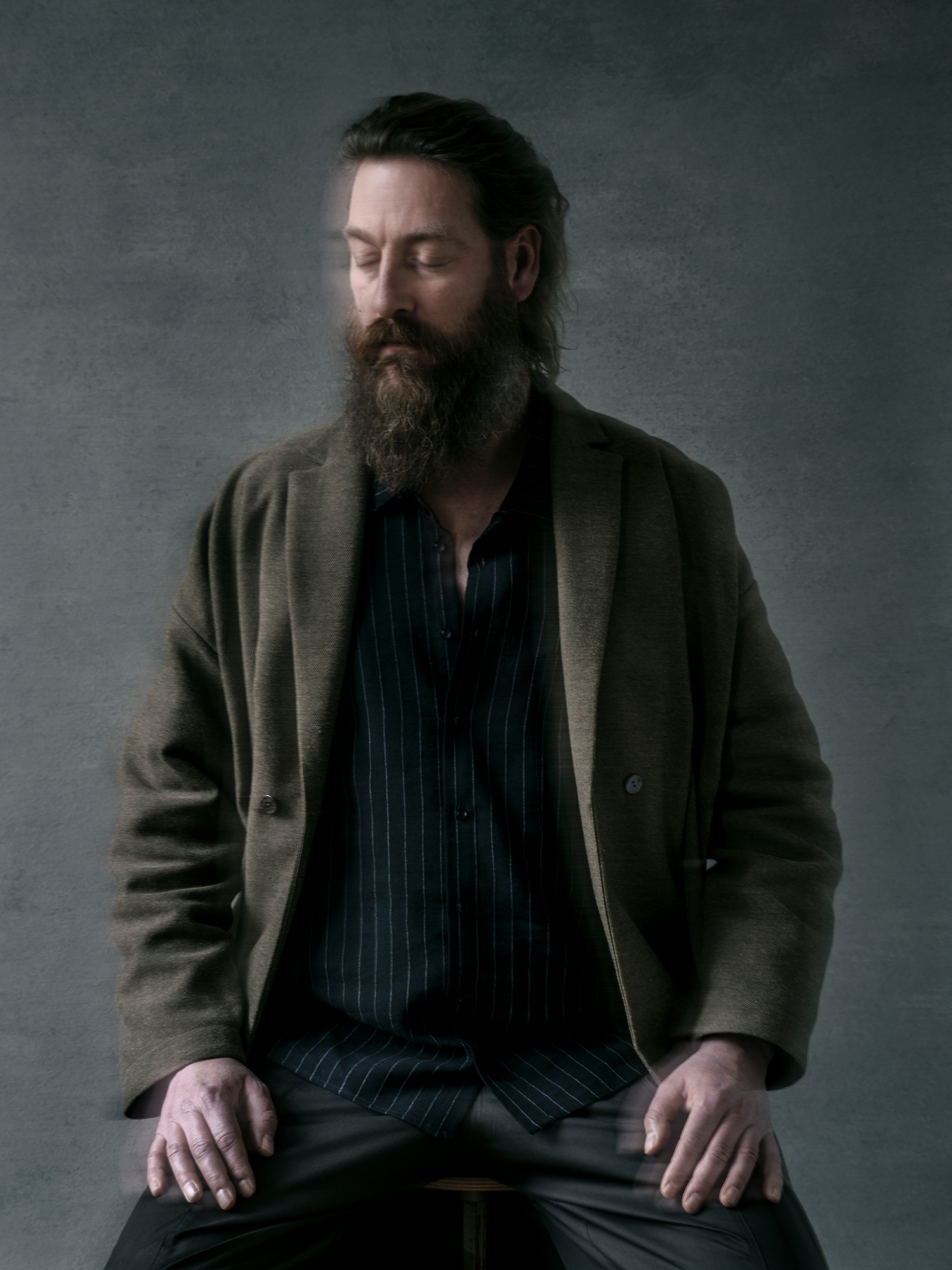
Colin H. van Eeckhout
No Sound Without Silence
An intriguing man with a calm demeanour, hiding a maze of thoughts behind his grey eyes, Colin H. van Eeckhout is the frontman of the band Amenra. Initiator of many collaborative projects that cross the boundaries between music and art, van Eeckhout explores his personal experiences under the name of CHVE. While participating in the underground scene, his universal language of emotion and authenticity harnesses wide appeal.

Many people associate the music you make with noise, volume and loudness, but actually silence plays an important role.
Silence is an essential part of our music. In every band we play in, we seek to use silence to its maximum effect. Comparable to the calm before the storm, when you go ‘small’ within the music, the mass of sound afterwards becomes twice as intense. You know it is coming, but you don’t know when. It’s all about contrast, or dualism even, and the two elements have a clear impact on people. Silence is a place where we don’t feel comfortable; it makes us vulnerable. You could say silence is the most ‘bare’ state of being. You become aware of every tiny detail, every breath or movement. As for the volume of sound, it takes up space; we can hide behind it, physically or even literally behind the instrument itself.
Being vulnerable isn’t often associated with your music genre, which has it roots in Doom/Sludge metal, Hardcore punk and Post-rock. It often focuses on the exterior world and social critique.
Particularly in Hardcore punk, I felt the broader spectrum of emotion was missing. I wanted to pull the music closer to our hearts. As tough as people of that scene portray themselves, everyone is brought to their knees at some point in life. That’s exactly what I wanted to talk about, that and the slow journey out of our depth. We felt we could bring personal experience to the genre, because such a wide spectrum of emotions can be expressed by music and sound in general.
Of course you have the ‘aggression’ which is more common, but we also try to give fragility a place. Because that is what makes us human. We all have both sides to our inner self. We focus on introspection for both the spectator, as well as for ourselves – expressing the feeling of the need to scream, or on the other hand, to feel broken. This is the magic of what we do – we give shape to these emotions. I think that’s why we are honored with such a diverse audience.
How did your personal project ‘CHVE’ materialize?
After years of being the ‘singer’ of the band, I wanted to explore what kind of music I could create personally. It started with the guitar and then a hurdy-gurdy. I think a solo project is the most direct projection that one can achieve. There’s no dialogue, which makes it slightly more scary. Making music on my own allows me to move faster and cut closer. Most of my creations come out of solitude, so it felt natural to occasionally work alone, although it makes me feel very insecure.
Colin H. van Eeckhout
“You could say silence is the most ‘bare’ state of being. You become aware of every tiny detail, every breath or movement.”





